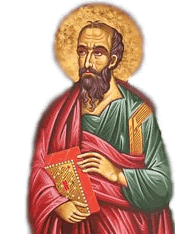You can find the novena starting on page 54 of the recently released Saints for our Times: New Novenas & Prayers
“Saint Who?” you may ask… We’re so glad you did!
Katharine Drexel was born in Philadelphia in 1858. In her mid-twenties she inherited her father's fortune along with two other siblings. Already involved in philanthropic works, when she petitioned Pope Leo for missionaries to help the Native American people, she acted on his invitation, “Why not be a missionary yourself.”
Katharine returned to the States and within five years she began the
Sisters of the Blessed Sacrament dedicated to education and advocacy for some of the poorest and most marginalized people in the American society at her time.
Mother Katharine died in 1955 and was officially recognized as a saint by the Catholic Church in 2000.
Alexandria historical note:
St. Katharine contributed funds to the church, school and rectory buildings of Joseph’s Parish in Alexandria. Read about it here.
“The patient and humble endurance of the cross – whatever nature it may be – is the highest work we have to do” --St. Katharine Drexel




